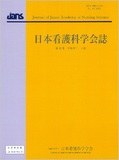Japanese
English
- 販売していません
- Abstract 文献概要
- 参考文献 Reference
要旨
目的:被災した認知症高齢者の家族の発災から災害中長期における生活上の困難を明らかにする.
研究方法:平成28年熊本地震または平成30年7月豪雨による被災経験があり,被災前に認知症高齢者と在宅で生活をしていた5名の家族に半構造化面接を行い,Riessmanのテーマ分析を実施した.
結果:12のテーマから[認知症高齢者の介護,自身の健康維持,被災後の生活再建を並行して行う苦悩],[避難生活の中で我慢や遠慮をしつつ全てを一人で背負う理不尽さ]等の4つのコアテーマが得られた.認知症高齢者を優先せざるをえない介護,生活再建を全て一人で抱えることが家族の被災後の生活をより困難にした.
結論:認知症高齢者とその家族の関係職者は,平時より災害後の支援対策を講じると共にインフォーマル・フォーマルサポートの情報提供と活用を促すことで,家族の被災後の生活上の困難を軽減できる可能性がある.
Aim: This study identified the difficulties in daily life faced by families of older adults with dementia during a disaster and through the mid- and long-term aftermath of the disaster.
Methods: Semi-structured interviews were conducted with five individuals who were living at home with an older adult relative with dementia when they were affected by the Kumamoto earthquake in 2016 or by the torrential rainfall of July 2018. Riessman's thematic analysis was used to examine the data.
Results: Four core themes emerged from the 12 themes, including: ‘the anguish of caring for the relative with dementia, maintaining one's own health and rebuilding one's life after the disaster’ and ‘the impossibility of having to bear everything alone with patience and discretion during the evacuation’. Postdisaster life was made more difficult for the participants because the older adults with dementia had to be cared for first, and the participants had to rebuild their lives by themselves.
Conclusion: Professionals and non-professionals caring for older adults with dementia and their families may reduce the families' hardship by taking measures to support them after disasters, providing information, and encouraging the use of informal and formal support services.
Copyright © 2023, Japan Academy of Nursing Science. All rights reserved.


